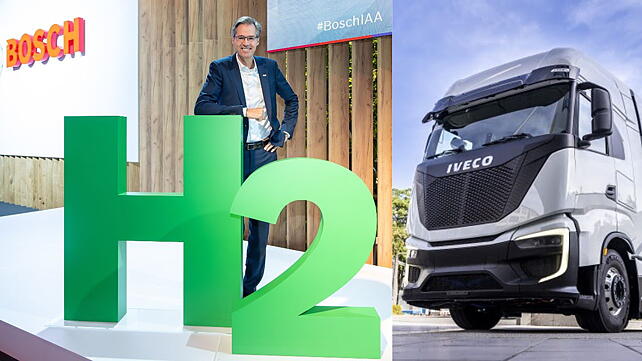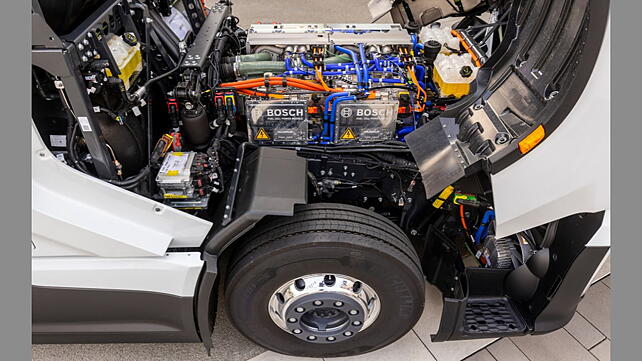
With a strong legacy in developing powertrain solutions and remaining confident in hydrogen as a fuel for the future, Bosch has begun volume production of its fuel-cell power module, marking its entry into the hydrogen era.
Dr Stefan Hartung, Chairman of the Board of Management, Robert Bosch GmbH, at the Bosch Tech Day 2023, noted that the company knows its way around hydrogen, and it is growing with hydrogen. The company operates along the entire hydrogen value chain, developing technology for its production and application. By 2030, it plans to generate sales of roughly €5 billion with hydrogen technology, he added.
Nikola Corporation, based in the United States, will serve as the pilot customer with its Class8 hydrogen fuel cell electric truck, which is scheduled to enter the North American market in the third quarter of 2023. The company will invest nearly €2.5 billion in H2 (Hydrogen) technology by 2026 and eyes sales worth €5 billion from H2 technologies by 2030.
For the production of H2 solutions, the company relies on a global manufacturing network and the prowess of its German locations. Its plant in Bamberg, Germany, will supply the Feuerbach factory with the fuel-cell stack. And important system components, such as the electric air compressor and the recirculation blower, come from its plant in Homburg, Germany.
At the start of 2023, the German company started constructing prototypes for electrolysis using proton exchange membranes, the reverse of the energy conversion method used in mobile fuel cells. Starting in the fall, the company intends to make 1.25-megawatt prototypes available for pilot applications and is on track to start volume production in 2025.
With the belief that only hydrogen can be a climate-neutral world, the company is exploring several options for the use of hydrogen. Stationary solid-oxide fuel cells can be used for the distributed supply of power and heat. In a pilot project at the hospital in Erkelenz, near Cologne in Germany, it wants to use this technology to achieve overall efficiency of 90%. The micropower plant will initially run on natural gas but can be converted to green hydrogen.

Besides the fuel-cell powertrain, Bosch is also working on the hydrogen engine, developing systems for both port and direct injection of hydrogen. This solution is particularly suitable for heavy vehicles on long hauls with especially heavy loads.
A hydrogen engine can do everything a diesel engine does, but it is also carbon neutral. It also allows a fast and cost-effective entry into hydrogen-based mobility, Heyn said. One major advantage is that over 90% of the development and manufacturing technologies it needs already exist. The H2 engine is expected to be launched starting in 2024.
Bosch currently has four orders for production projects from all the major economic regions and expects six-figure unit volumes by 2030. In this field as well, the company is dynamically taking the hydrogen economy forward.
While the opportunities are huge, Dr Hartung has four demands for German and European policymakers. He noted that Europe has to step up the pace of hydrogen production in the EU. Second, global supply chains have to be set up, and third, hydrogen has to be used in all sectors of the economy. As a fourth point, he stressed the importance of quickly setting up infrastructure for distributing hydrogen in Europe.
He added that markets like India have a sense of competitiveness, which makes companies like Bosch invest in new technologies for these markets.
Also Read: